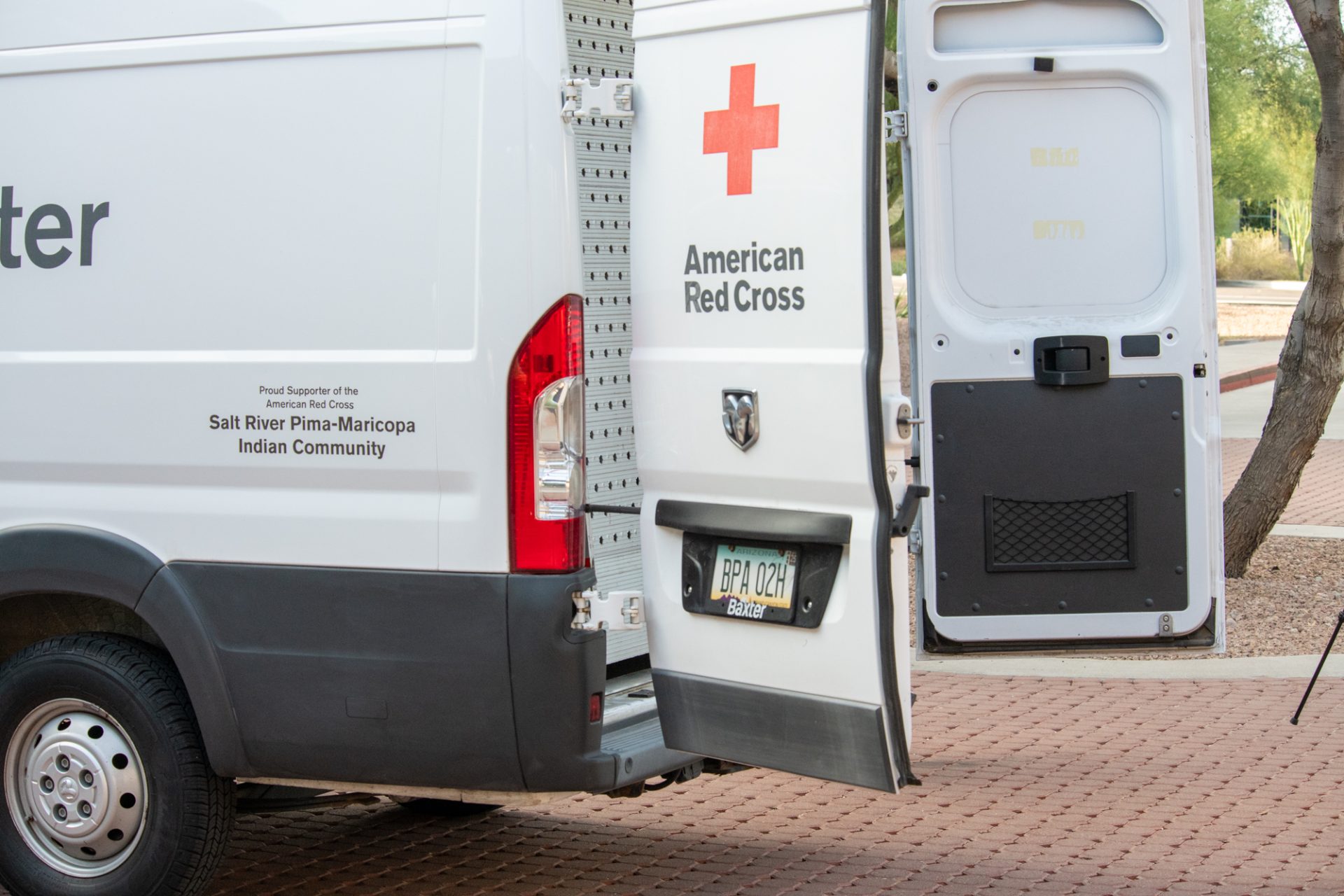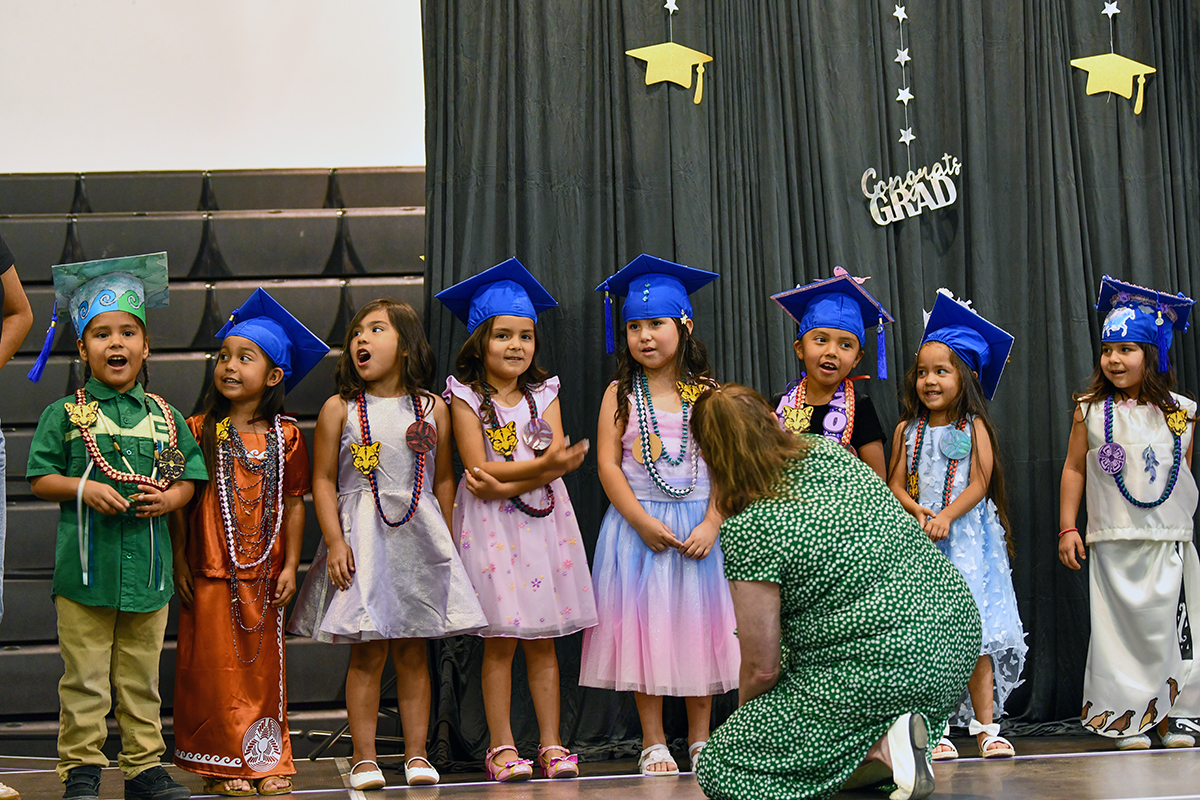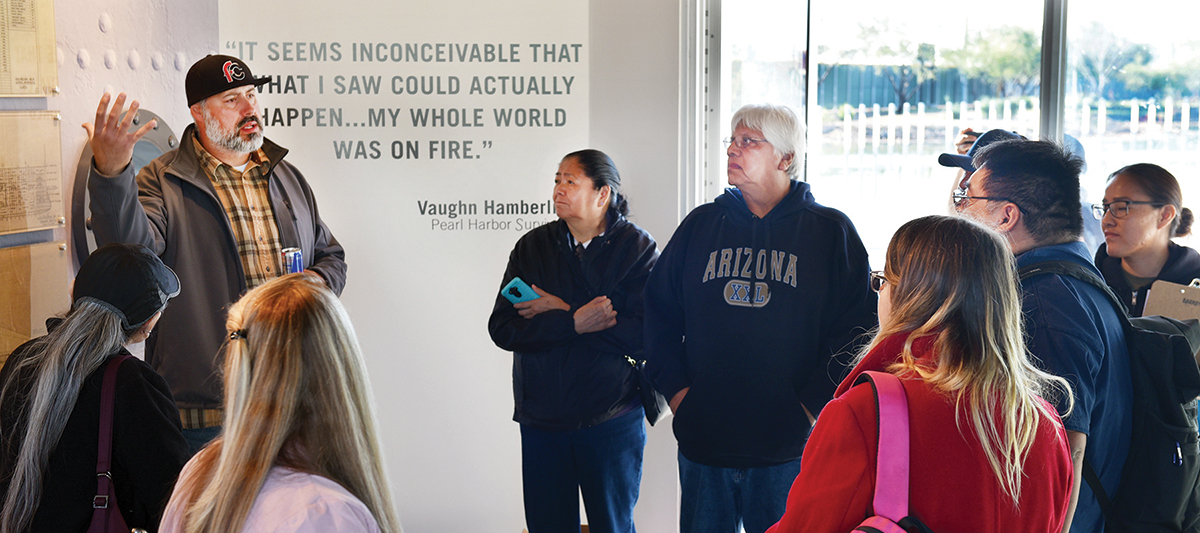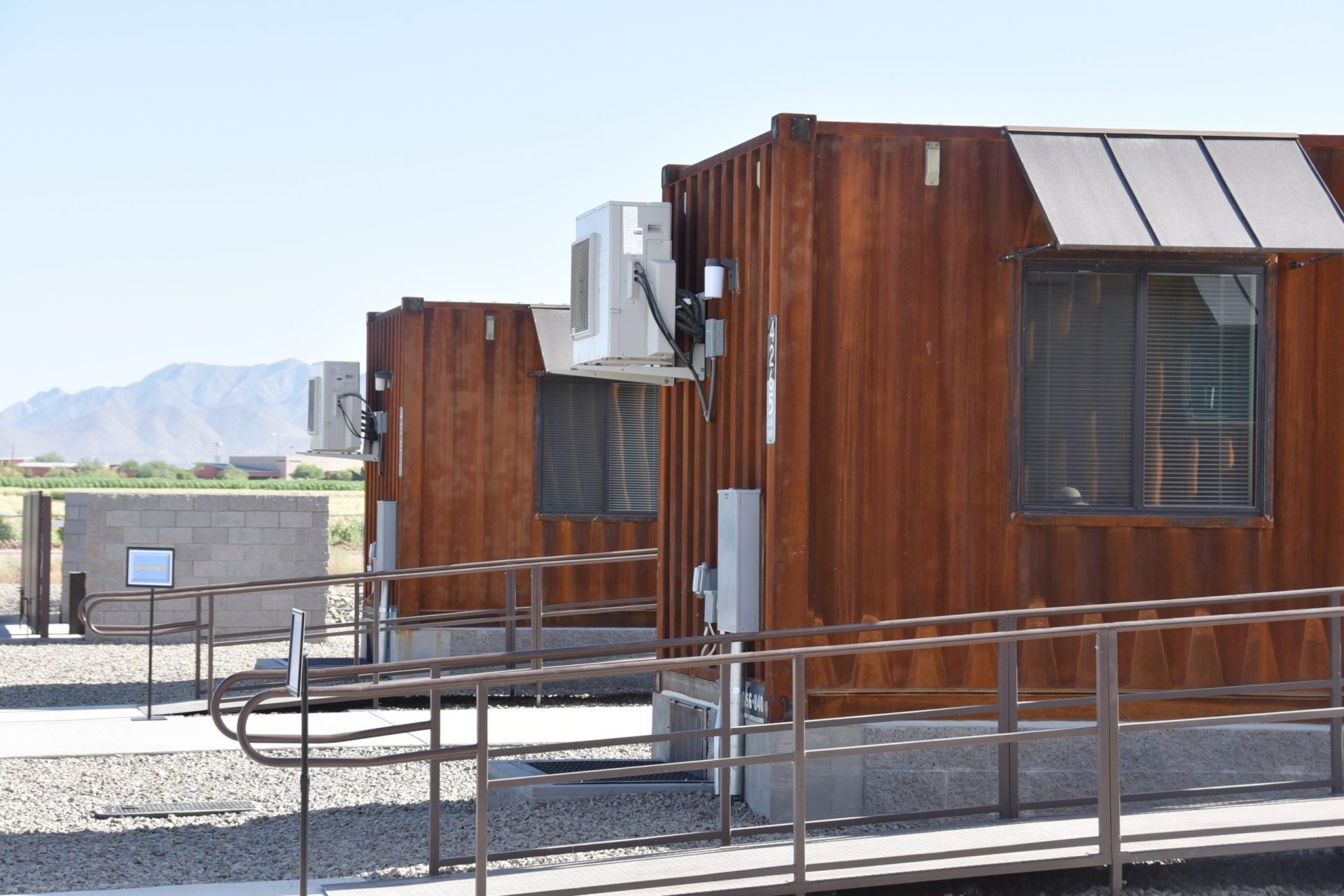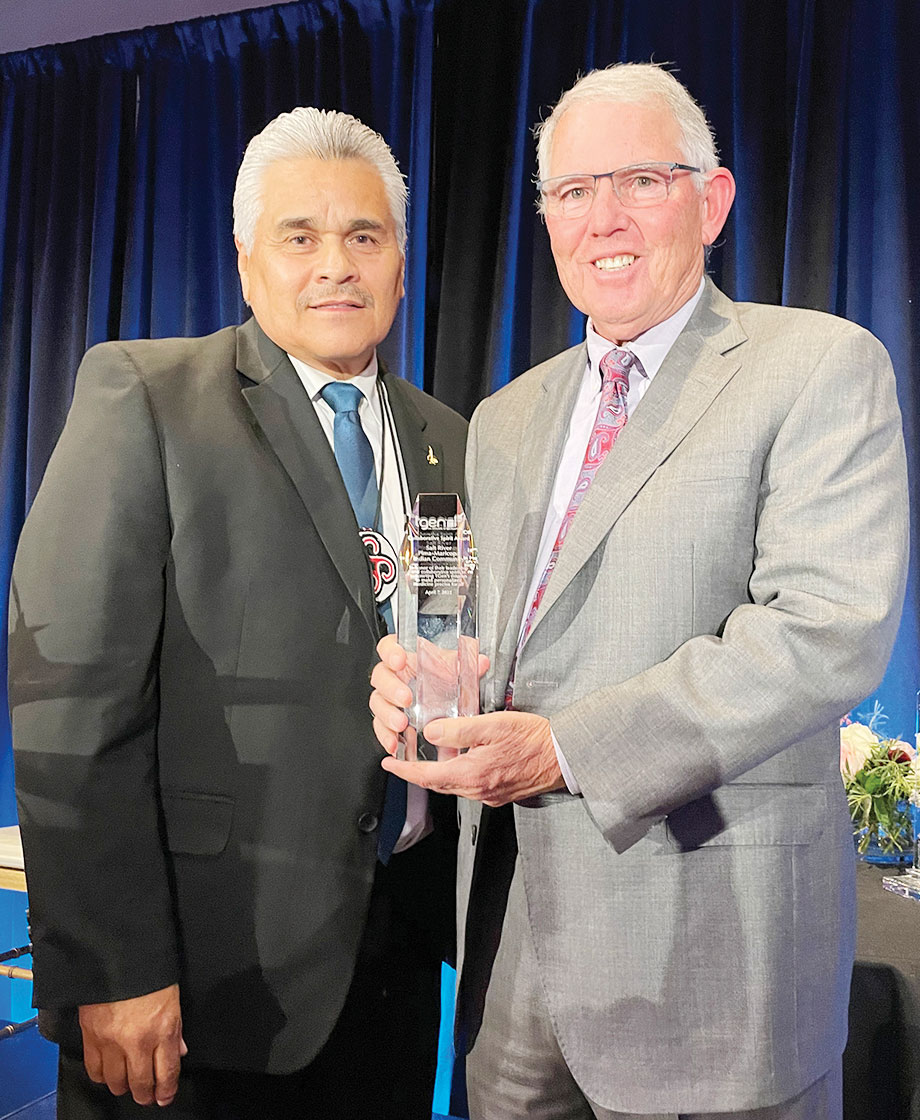VIEWS: 1480
October 1, 2024Red Cross Displays Co-Branded Mission Response Disaster Relief Van at Council Meeting
Before the Salt River Pima-Maricopa Indian Community Council meeting on August 28, American Red Cross community volunteer leader Craig Rhodes pulled up to the roundabout outside the Council Chambers in a co-branded Red Cross/ SRPMIC mission response disaster relief van.
The message “Proud supporter of the American Red Cross — Salt River Pima- Maricopa Indian Community” is stamped on the back of the van. Rhodes was assigned the role of Red Cross Goodwill Ambassador to the SRPMIC.
The American Red Cross is a 501(c)(3) nonprofit humanitarian organization that has responded to emergency situations and crises across the country for more than 150 years.
Red Cross representatives were on hand to talk about the van, which was purchased with a 12% gaming grant from the SRPMIC, and to talk about some of the work that the Red Cross has done recently responding to incidents in Native American communities in the Southwest.
Gaming in Arizona is governed by the Arizona Tribal-State Gaming Compact between the state and all 22 federally recognized Arizona tribes. Under Arizona’s compact, tribes with casinos are required to share revenue with the State of Arizona each year for a variety of programs such as Trauma Care, Education, Tourism, Conservation, and regulatory costs of the Arizona Department of Gaming. In addition, tribes can control a portion of revenue that would otherwise go to the State and distribute proceeds to Cities, towns, and non-profit organizations. This program, the 12% gaming grant program is administered through the SRPMIC Office of Congressional and Legislative Affairs working with a Council appointed Committee.
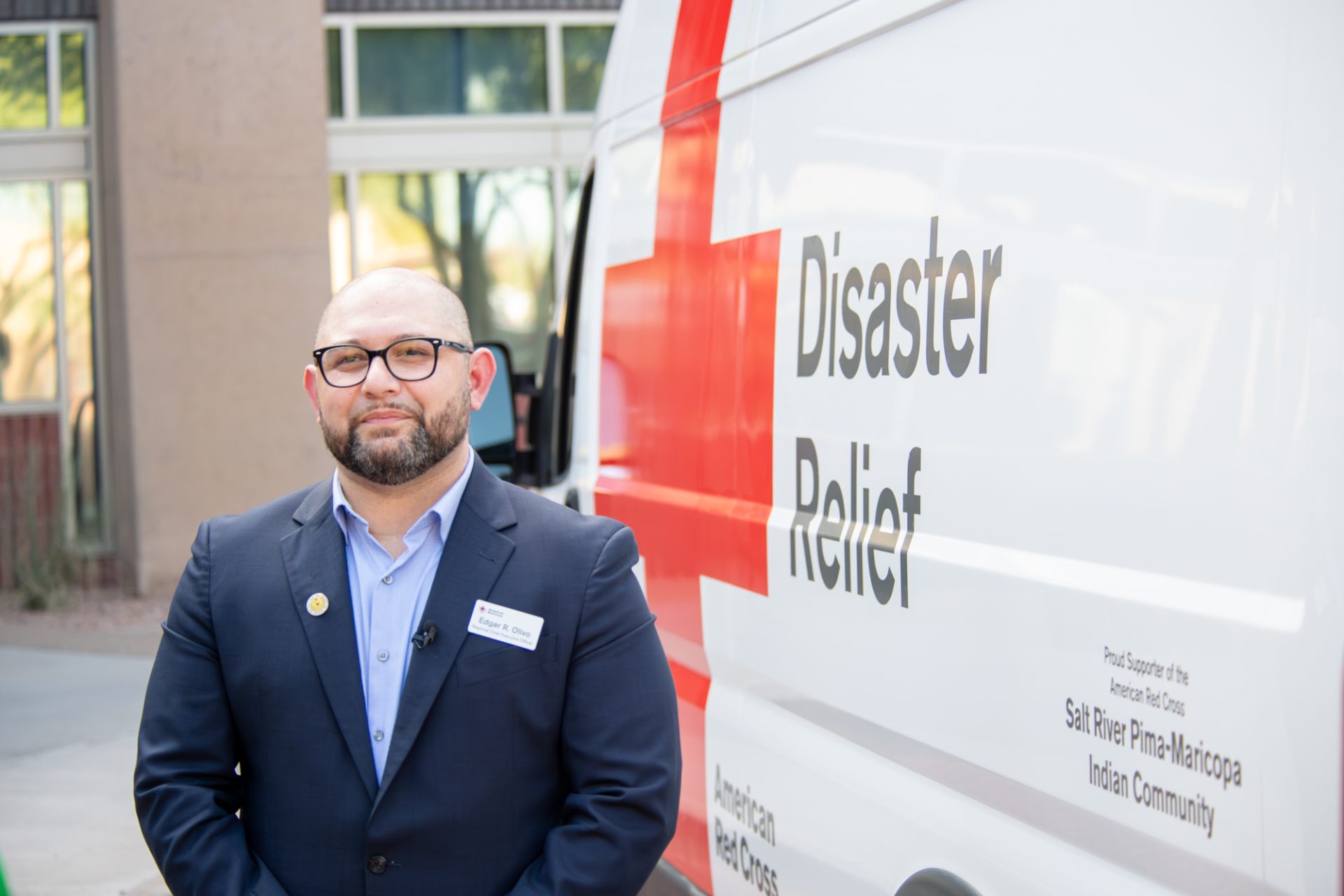
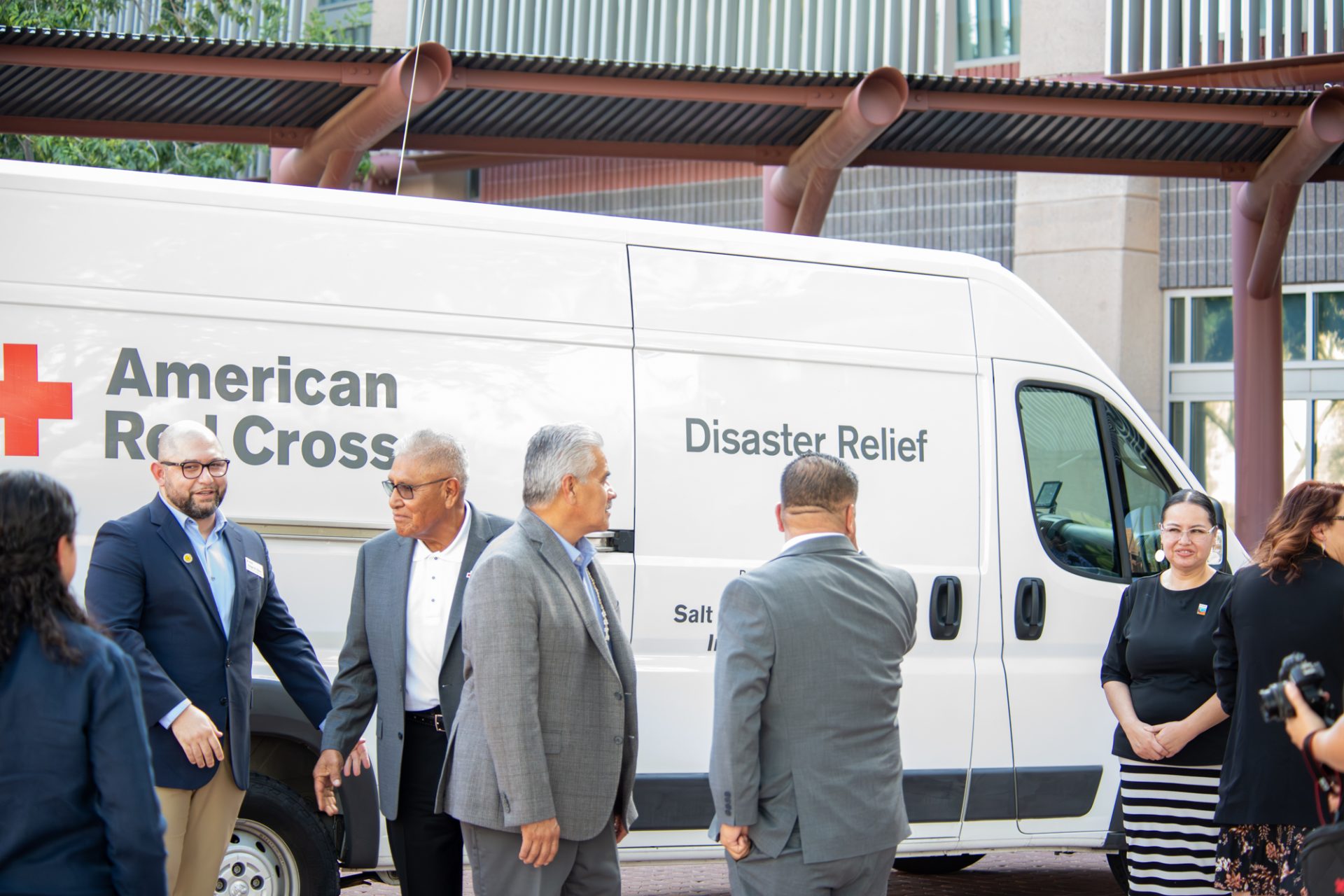
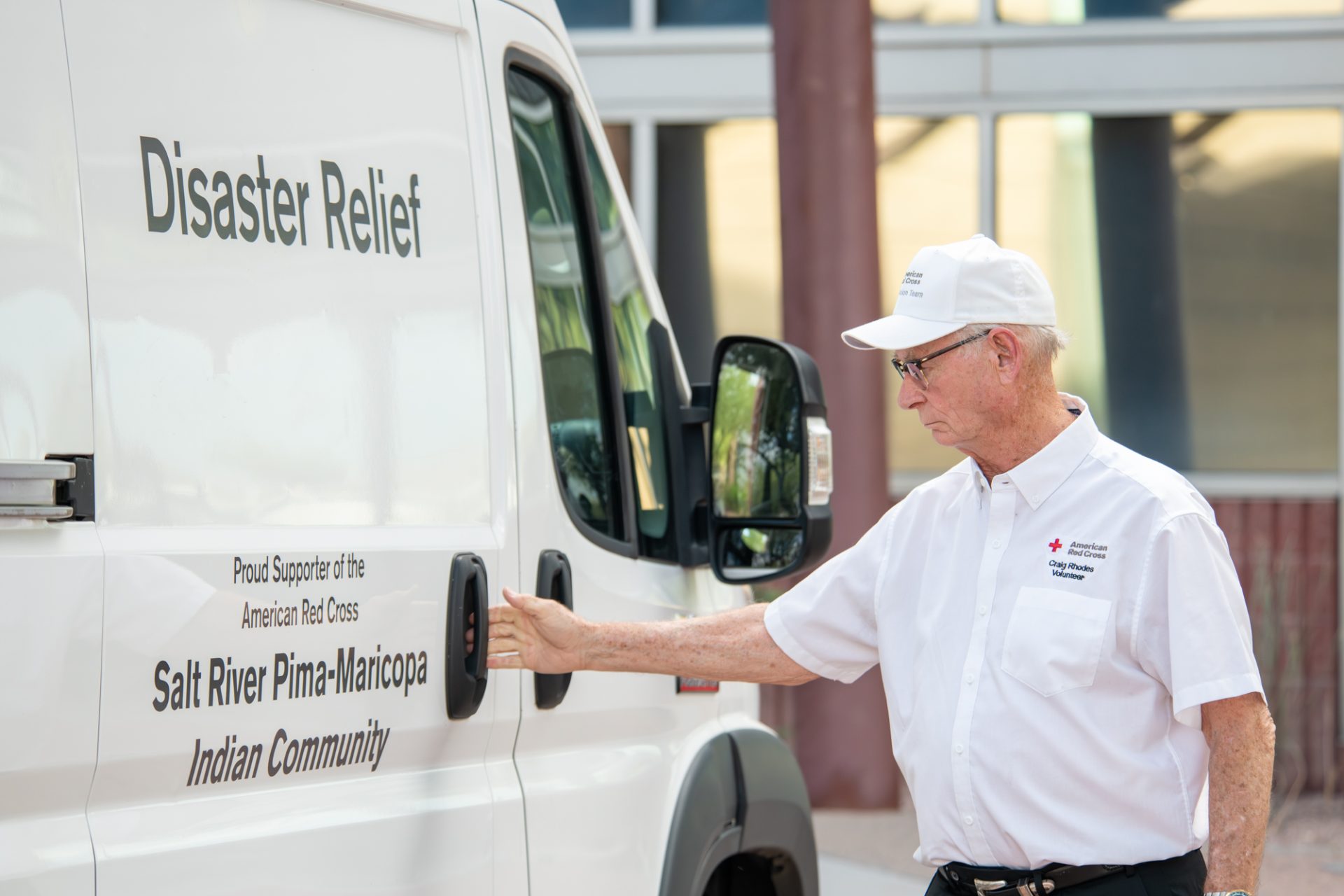
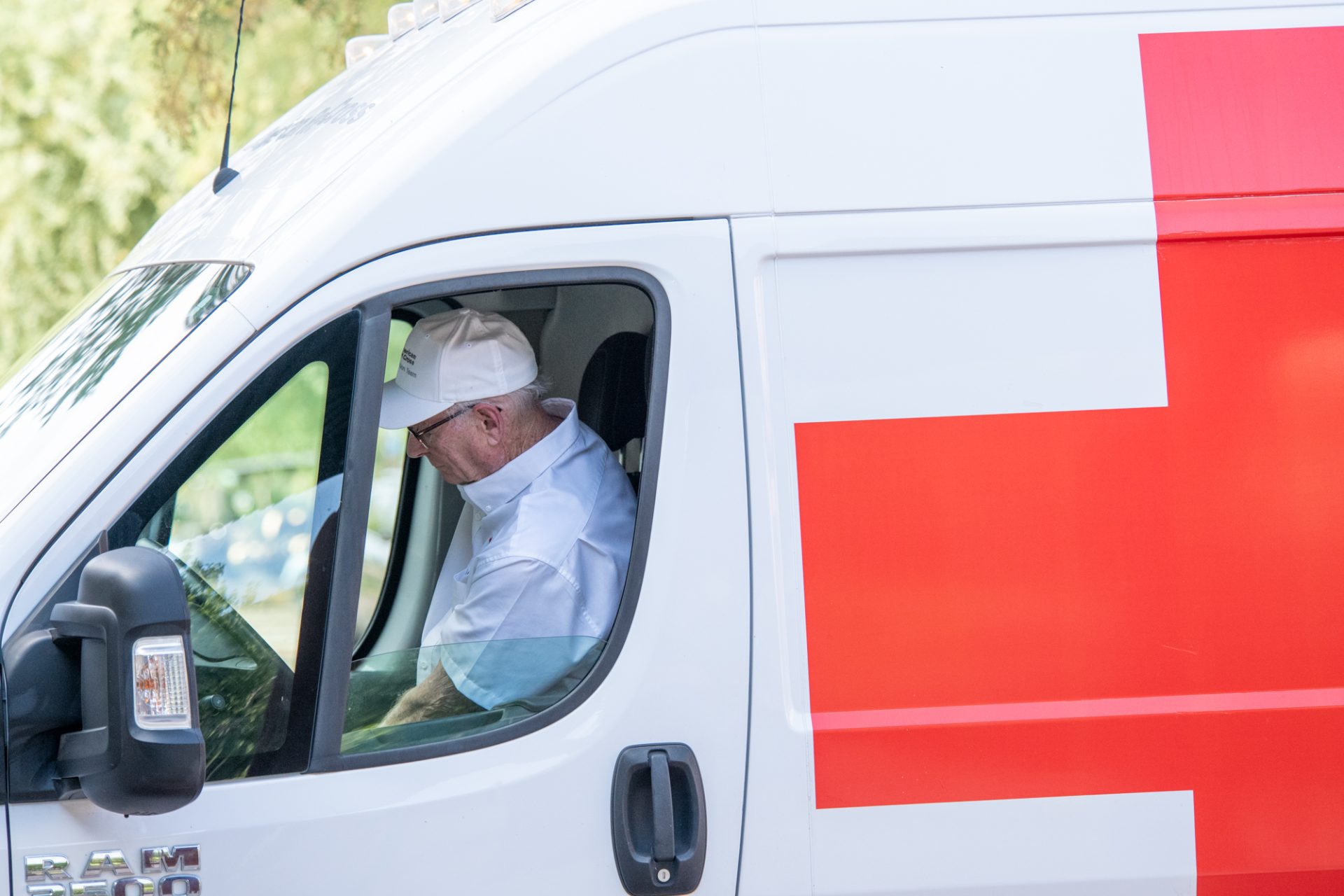
SRPMIC Special Assistant for Legislative Affairs Gary Bohnee is the Chair of the Committee, along with SRPMIC President Martin Harvier, Vice-President Ricardo Leonard, Council members Cheryl Doka and Mikah Carlos, Salt River Tourism supervisor Jessica Sepulveda and Mr. Winter Wood.
According to Bohnee, the SRPMIC has had a relationship with the Red Cross since 2008.
“During the [COVID-19] pandemic, the SRPMIC was supportive of organizations like the Red Cross that provided critical services in the Community at large, such as blood drives and financial assistance to individuals dealing with crisis situations,” said Bohnee.
“More recently, they have focused on heat mitigation and the impact that high temperatures are having in the Community at large.”
The grants have also supported the installation of fire alarms in homes. All of these activities have also been provided in the Community, Bohnee said.
At the Council meeting, Edgar Olivo, American Red Cross CEO for the Arizona/ New Mexico region, spoke to Council about the organization’s response to some current events in the region.
“As a gesture of recognizing the important investment you made in the mission of preventing and alleviating human suffering in the face of emergencies … this is one of my proudest moments to be here and present you with this new vehicle that now represents your Community and this very generous donation you made,” said Olivo.
“We can only do that thanks to the power of volunteers and the generosity of donors.”
Recently, the Red Cross delivered blankets, cots, comfort kits and other items to the San Carlos Apache Tribe in response to a wildfire. The Red Cross also supported an emergency operations center and provided financial assistance to 16 families who lost their homes as a result of the fire.
“We did that thanks to your donation as well,” Olivo told Council. The Red Cross also worked the South Fork and Salt wildfires in New Mexico, that impacted the Mescalero Apache Tribe, this summer, delivering 30,475 meals and snacks, providing 2,700 overnight stays and engaging 228 Red Cross disaster workers.

